The Gumbi Alton Permaculture Project
The Gumbi Alton Permaculture Project (GAPP) helps the Gumbi community to develop resilience to extreme weather events (such as droughts and storms) resulting from climate change and develop a more regular food supply, less dependent on the staple maize. Malawi is a poor country highly vulnerable to climate change because most people farm the rain-fed staple crop, maize, and are dependent on very expensive chemical fertilisers and increasingly unpredictable rain.
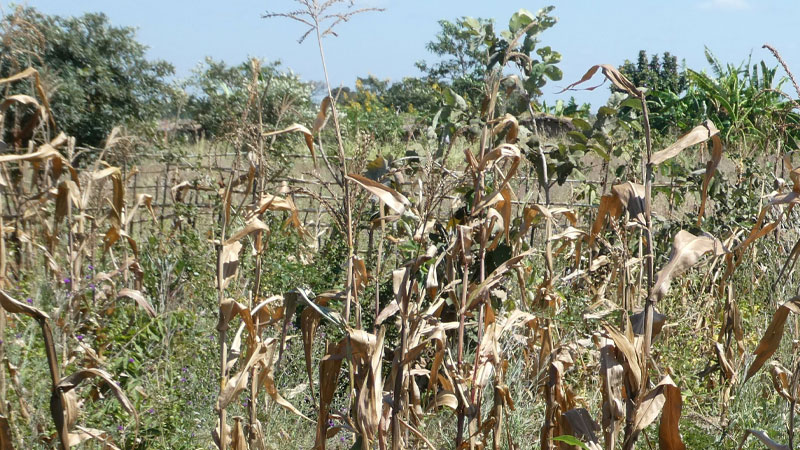
Since 2020 the Gumbi Education Fund has joined with Alton Climate Action Network (in Hampshire, England).
Together, we have funded the training of young people in permaculture techniques and continue to financially support organic permaculture (both on a demonstration farm and on villagers’ homesteads), providing land, tools, seeds and seedlings, bikes to travel to and from villages, and funding buildings, solar panels and irrigation. The project has ambitious future plans to develop as a permaculture training hub for subsistence farmers in the Liliongwe district around Gumbi village.
Training young farmers in permaculture
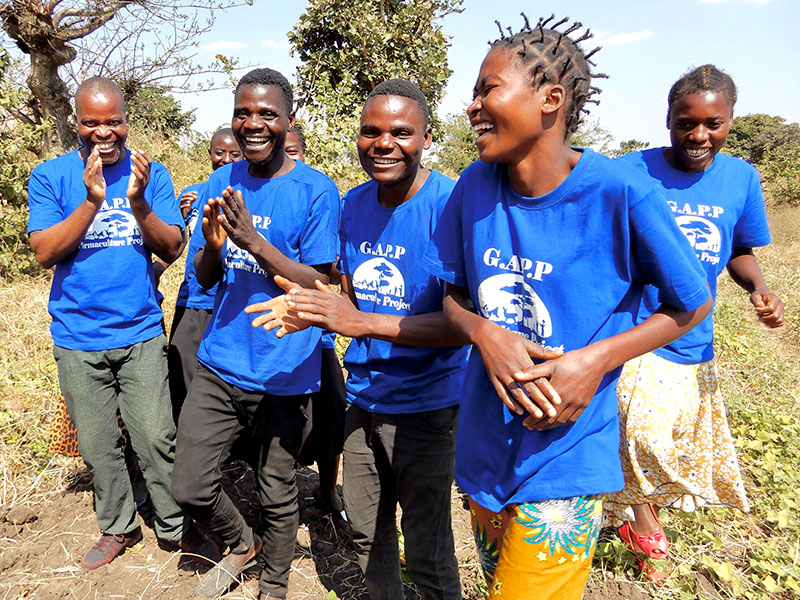
In 2020-21, we funded the training of 15 young farmers (women and men) at the Permaculture Paradise Institute, which is directed by Luwayo Biswick. The PPI is now the largest permaculture project in Malawi with 23 acres, a restaurant and a farmers’ cooperative market. https://permacultureinstitutemw.com/
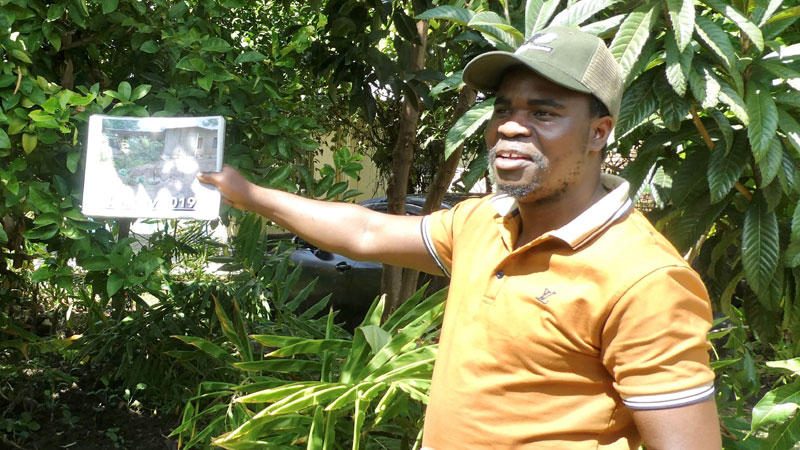
Permaculture means growing a very wide range of crops in layers (trees, bushes, low-growing crops to keep the ground covered). It is organic, replacing very expensive chemical fertilisers with a circular system using compost from farm waste and animal manure. Permaculture is underpinned by a strong ethical framework.
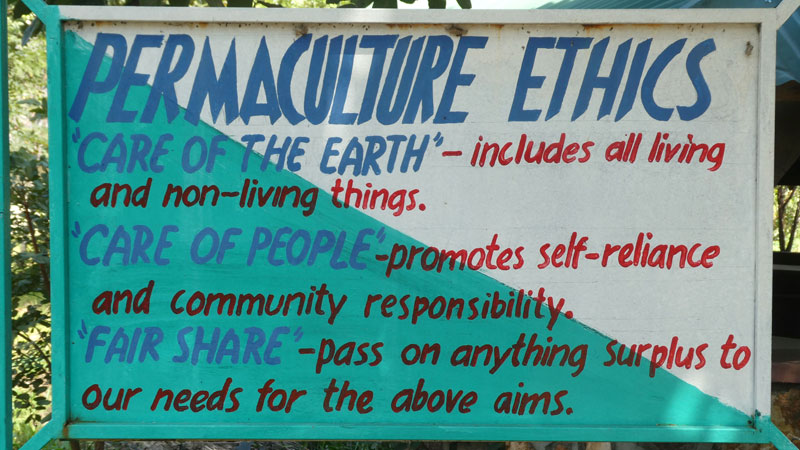
The aim: food every day
In 2021 the GEF and ACAN funded the purchase of 3 acres of land to set up a demonstration farm. The local farmers are now growing, without chemical fertiliser, dozens of different fruit and veg, with large harvests of sweet potatoes, cassava, yams, various Malawian heritage plants such as kankhoma beans, many different types of green veg, fruit trees, vines, bananas watered by grey water from showers and toilets and much more. A large number of trees have been planted.
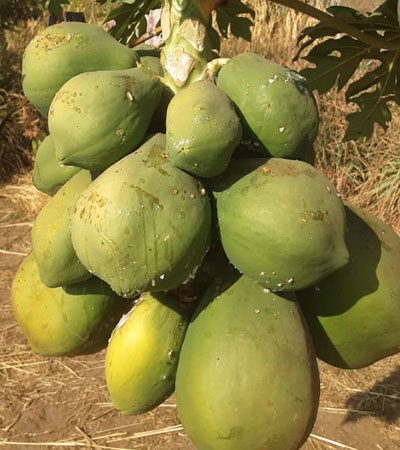
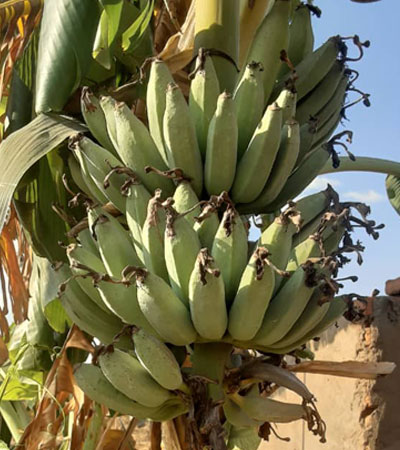
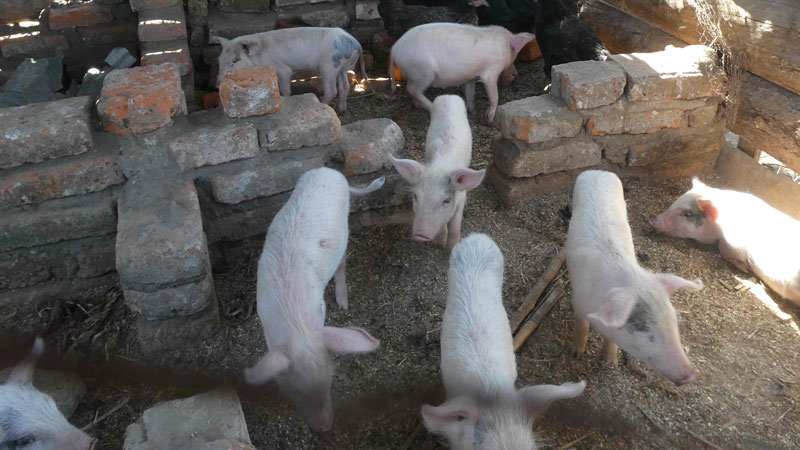
Animals such as pigs are kept for manure, and for food and to share piglets with other villagers.
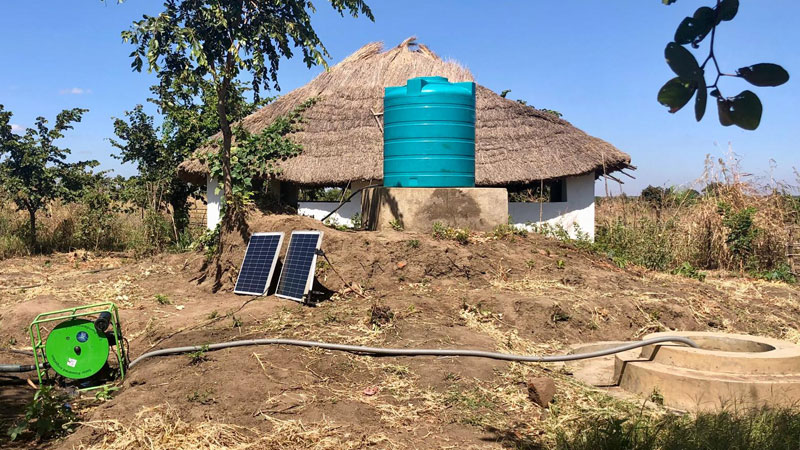
We have funded bikes for the young farmers to travel to and from the farm, seeds and seedlings, and all the farm infrastructure, including a storeroom with solar power, a classroom, a large water storage tank and solar pump, a huge 50,000 litre water storage pond, housing for animals, rondavels for accommodation and composting toilets. A teaching kitchen with solar appliances (including food storage) is being built. We hope to be able to expand the size of the farm, and provide funding for a deep drilled borehole.
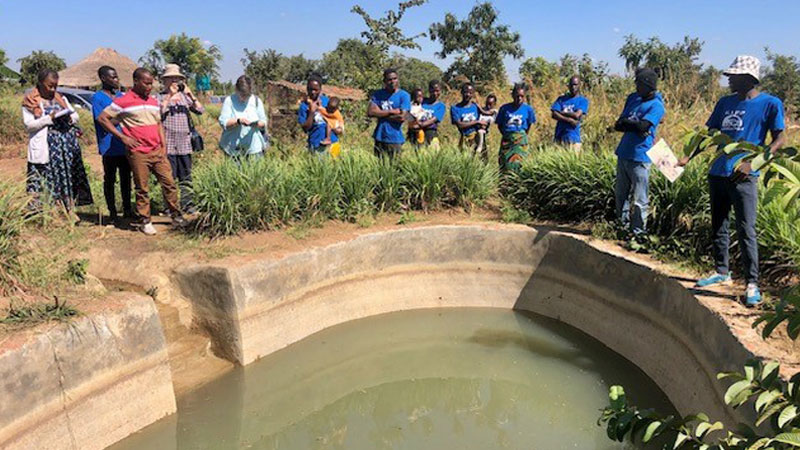
Homestead permaculture farming
Some of the young farmers are now focusing on permaculture techniques on their own homestead plots. We have funded wheelbarrows and tools and seeds for them. The plan is to substantially expand homestead permaculture farming. This will require more investment in wells, boreholes and irrigation equipment.
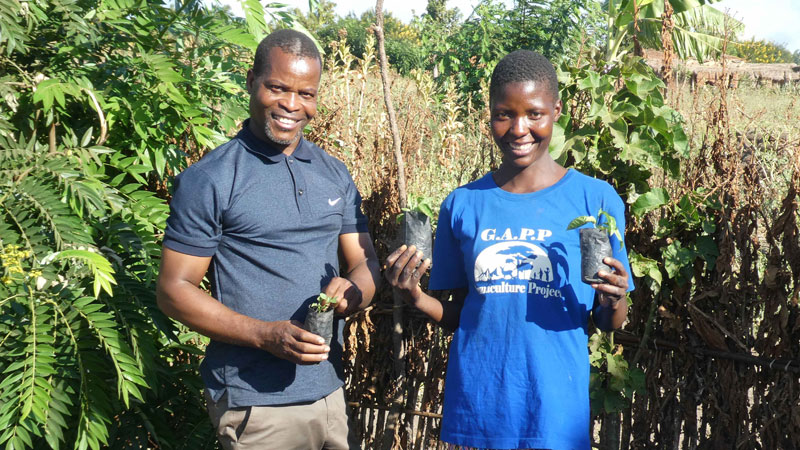
Future plans
The main demonstration farm will become a local training centre for farmers from the Dowa district, learning how to adopt these farming methods on their own plots, and also offering cookery classes for the preparation of the diverse range of crops.
We are excited that the Gumbi villages are part of the growing permaculture movement that is spreading through Malawi.
The GEF local co-ordinator Patrick Kamzitu has a key role as organiser of the development of the farm and homestead farming. He says, “together we can” and we totally agree!

